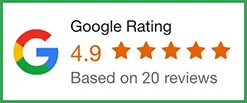Choosing the best tools for reporting SEO performance depends on your specific needs, budget, and client expectations. Here are some highly-rated options across different categories:
Free & Open-Source Tools:
- Google Search Console: Essential for tracking organic traffic, keywords, indexing status, and technical SEO issues. Offers basic reporting functionalities.
- Google Analytics: Provides valuable insights into website traffic, user behavior, and engagement metrics. Requires some customization for SEO-specific reporting.
- SEOquake: Chrome extension offering on-page SEO analysis, competitor comparisons, and basic keyword research. Limited reporting capabilities.
Paid Platforms:
- Ahrefs: Comprehensive platform for backlink analysis, keyword research, competitor analysis, and technical SEO audits. Robust reporting features with customizable dashboards and white-label options.
- SEMrush: Similar to Ahrefs, offering keyword research, competitive analysis, technical SEO audits, and on-page optimization suggestions. Extensive reporting suite with pre-built templates and data visualization tools.
- Moz Pro: Strong focus on on-page optimization, technical SEO audits, backlink analysis, and local SEO tools. Reporting features include customizable dashboards and white-label options.
- DashThis: All-in-one reporting platform integrating data from various sources (Google Analytics, SEO tools, social media) into customizable dashboards. User-friendly interface and white-label capabilities.
Additional Considerations:
- Data integrations: Choose tools that integrate seamlessly with your existing analytics platforms (e.g., Google Analytics, Google Search Console) for streamlined data collection and reporting.
- Visualization options: Consider the level of data visualization needed. Some tools offer interactive charts, graphs, and maps for compelling presentations.
- White-label capabilities: If presenting reports to clients, opt for tools offering white-labeling options to showcase your own branding.
- Budget and learning curve: Balance functionality with your budget and technical expertise. Some tools have steeper learning curves than others.
Final Tips:
- Focus on key metrics: Don’t overwhelm your audience with data overload. Choose relevant metrics aligned with your client’s goals and objectives.
- Tell a story: Present data in a clear, concise, and easy-to-understand way. Highlight key trends, successes, and areas for improvement.
- Tailor your reports: Customize reports to each client’s specific needs and interests. Avoid a one-size-fits-all approach.
- Schedule regular reporting: Establish a consistent reporting schedule to track progress and measure the impact of your SEO efforts over time.
By investing in the right tools and following these tips, you can create impactful SEO performance reports that keep your clients or stakeholders informed and engaged. Remember, clear communication and transparency are key to building trust and achieving long-term SEO success with your clients.





